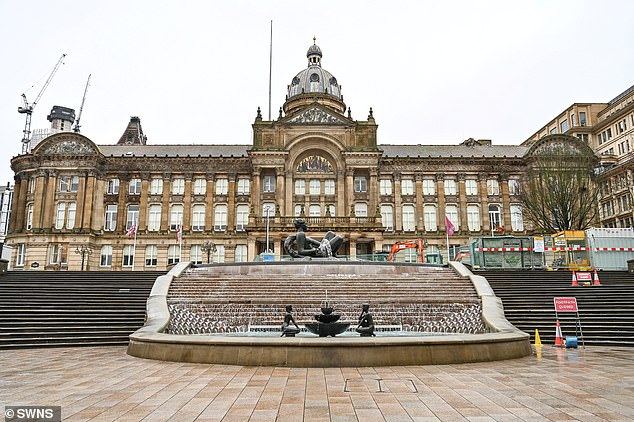Birmingham City Council was probably never bankrupt, a group of experts have claimed.
The Labour-run local authority imposed a wave of swingeing cuts to local services and announced a fire sale of assets after issuing a section 114 notice two years ago, effectively declaring it bankrupt.
But now a group of 35 experts and academics have urged Communities Secretary Steve Reed to launch a public inquiry into the council’s decision – after analysis suggested it had underestimated the funds at its disposal by £1.4 billion.
Dr James Brackley, of the University of Glasgow, undertook research comparing the figures used by the council to justify the move to subsequent figures in its accounts which were belatedly published in July this year.
‘These accounts show that the reserves position put forward by the Council at the time of the “bankruptcy” now appears to have been materially incorrect, to such an extent that it now appears that the Council was likely never “bankrupt”,’ the analysis concluded.
An open letter signed by the experts has called on the Government to investigate ‘how and why such a damaging section 114 notice could have been initiated based on unaudited and, as has now come to light, materially incorrect accounting information’.
It raises yet more embarrassing questions for the crisis-stricken council, which has this year been embroiled in rows for attempting to tear down Union Jacks from lampposts – while leaving Palestine flags in place – and failing to resolve a bin strike.
The walkout by bin workers at the start of the year resulted in mountains of fetid waste piling up on the pavements across Britain’s second city.
At the time it declared bankruptcy, the council blamed a combination of ruinous liabilities from equal pay claims, which it said surpassed £760 million, and the fallout from a bungled IT scheme, called Oracle, which had cost £100 million.
But in their open letter, the group of academics and experts expressed concern that ‘crucial figures’ were ‘materially misstated’, adding: ‘We are concerned that the issues underlying the Birmingham case could be repeated as other authorities enter into financial difficulty.’

Birmingham City Council imposed a wave of cuts to local services and announced a fire sale of assets after issuing a section 114 notice two years ago, effectively declaring it bankrupt
The analysis found that the general fund of the council in its 2022-24 accounts was around £784 million, as opposed to the £677 million deficit that the council had forecast for its 2023-24 reserves.
This was a result of the council underestimating its reserves, incorrectly omitting other funds and overestimating how much it would face in liabilities from equal pay claims, the analysis concluded.
The accompanying letter called for an inquiry to ‘learn lessons of the Birmingham case, provide answers to the people of Birmingham, and, crucially, ensure that these lessons inform the upcoming programme of local audit reform’.
Responding to the analysis, the Labour leader of the council, Cllr John Cotton suggested the council’s parlous financial position was partly due to ’14 years of crippling Tory cuts’ that he claimed cost Birmingham more than £1 billion.
He said: ‘My focus over the last two years has been on dealing with equal pay, the re-implementation of Oracle and with tackling a huge budget deficit. We continue to make progress on all three.
‘Oracle remains on track, last week we signed an agreement with UNISON and GMB to settle the outstanding equal pay claims brought by the two unions, and crucially, this year we’re on track to deliver a balanced revenue budget without the need for exceptional financial support for the first time in several years.’
The council also said that when the section 114 notice was issued, it was facing a budget shortfall of £87 million and had not yet secured Government approval to cover its equal pay liability through either borrowing or selling off assets.
The Ministry of Housing, Communities and Local Government (MHCLG) said the decision to issue the notice had been taken locally.
An spokesman said: ‘Birmingham City Council has made progress on its reform and recovery, but challenges remain, which is why commissioners continue to support the council to deliver for local people.”
Share or comment on this article:
Labour-run Birmingham council was probably never bankrupt, expert says